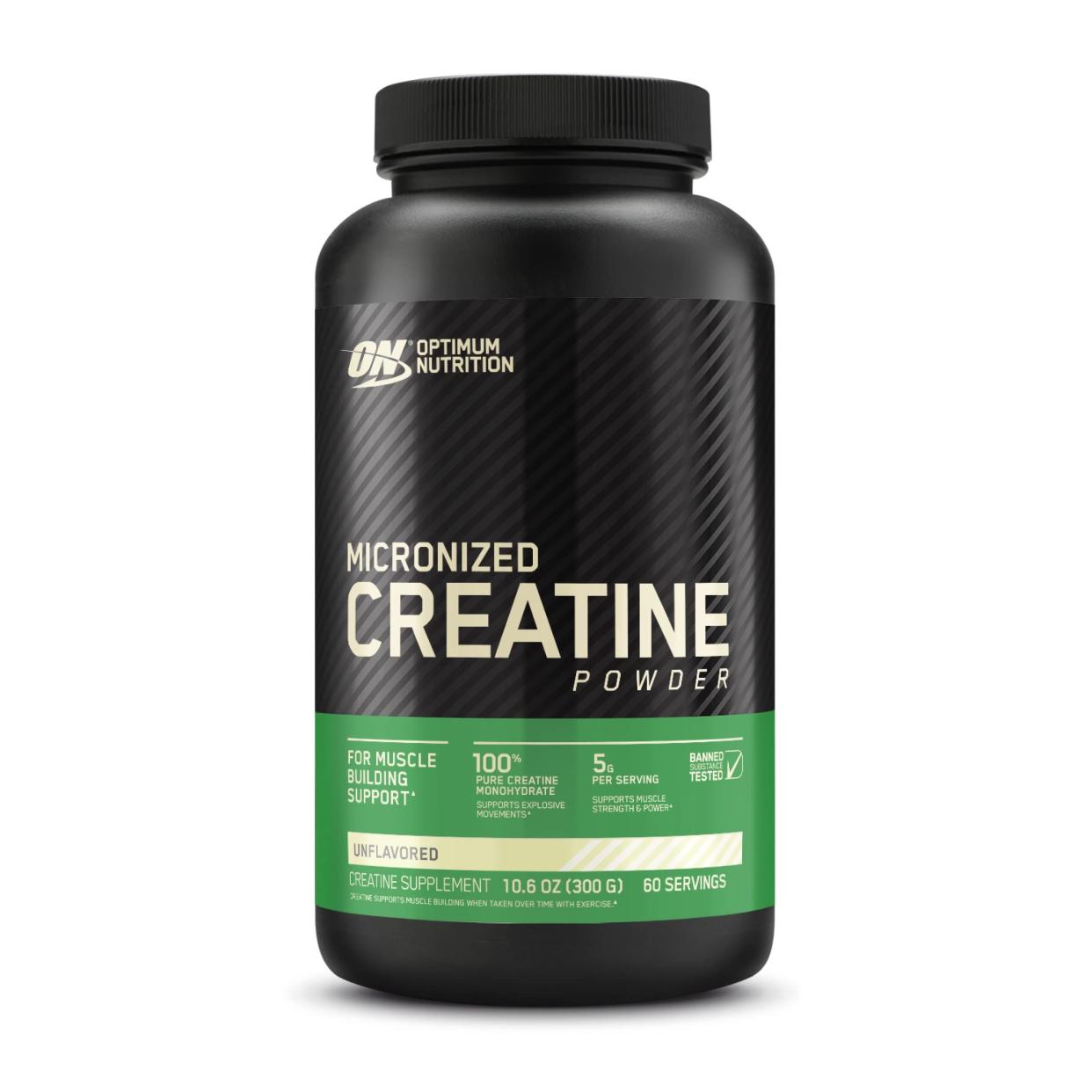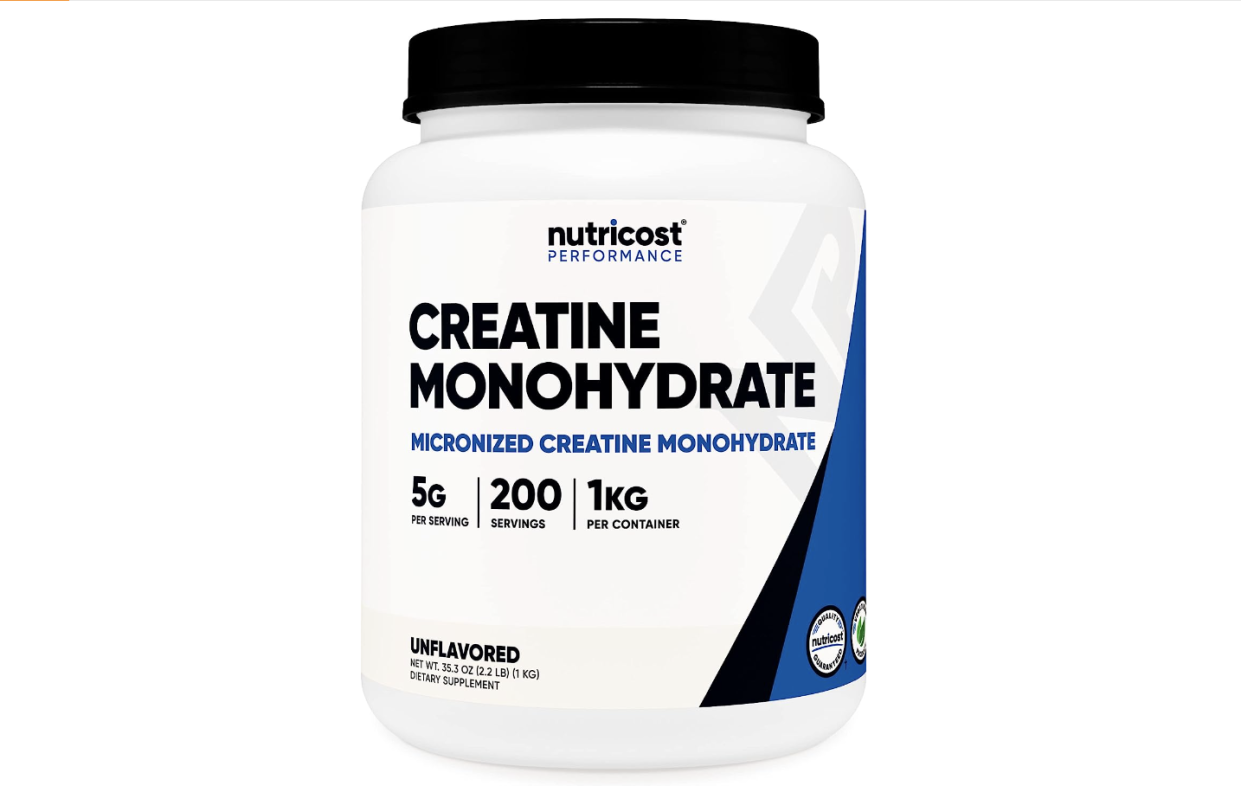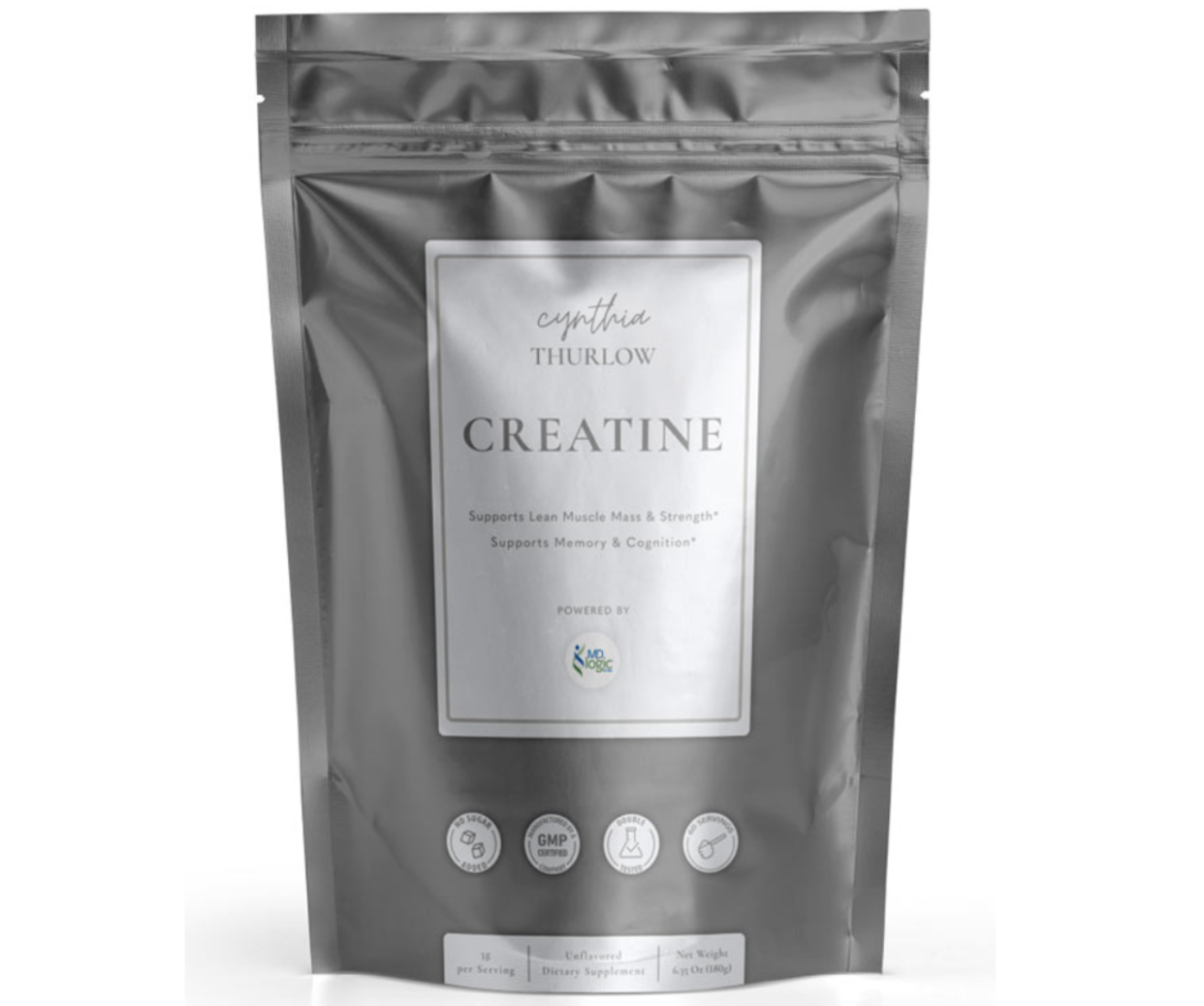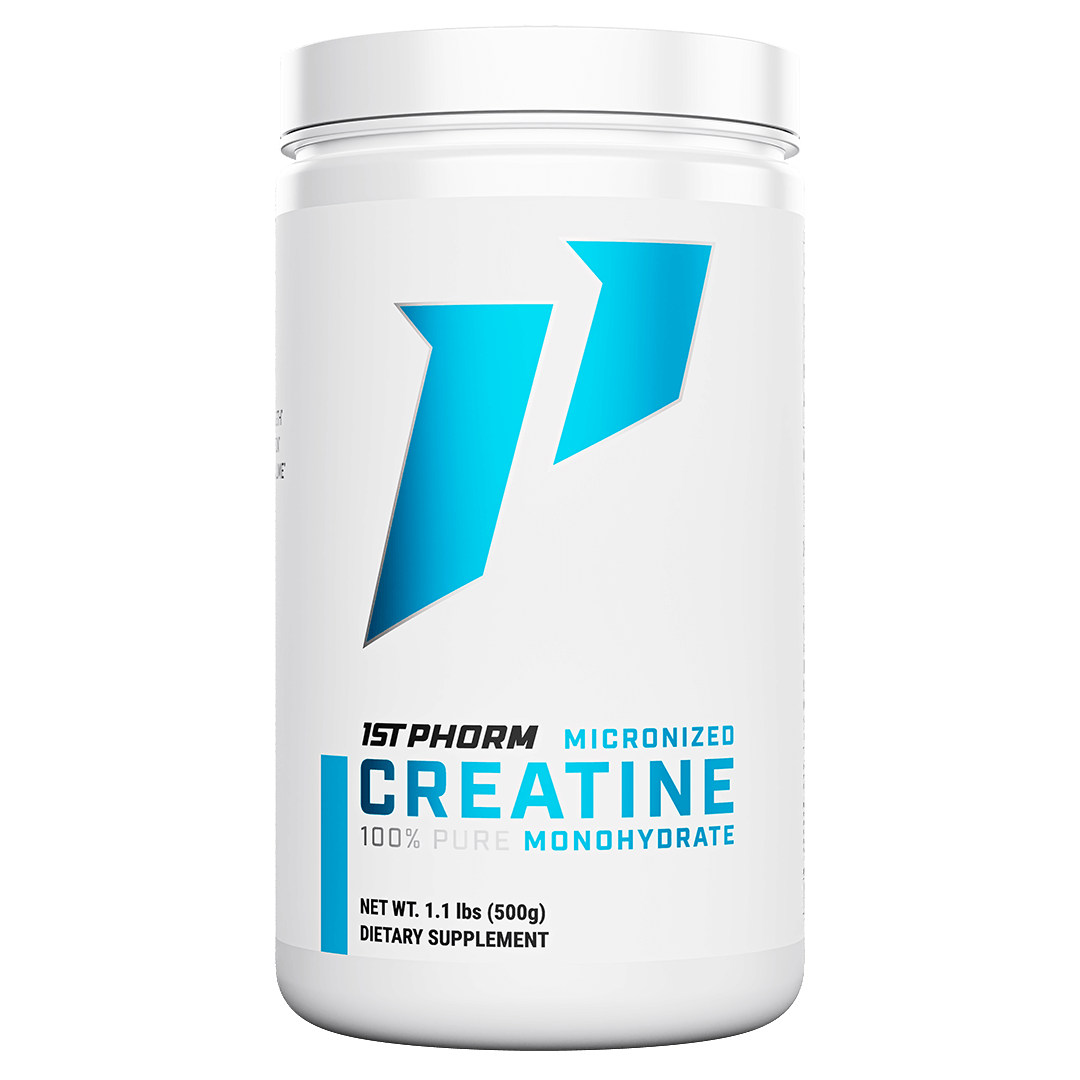Why Creatine Is The Missing Ingredient In Your Wellness Routine
"Hearst Magazines and Yahoo may earn commission or revenue on some items through these links."
With so many supplements on the market, it can be tough to know which ones actually support your health and fitness goals. Luckily, creatine is both highly-studied and widely-used, giving you a lot of data about this energy-producing compound found naturally in your muscles and brain.
During a workout, creatine supplies your muscles with fast-acting energy. It’s beneficial in moments when you need a quick-hit of power and is especially helpful during high-intensity physical activity like weightlifting, HIIT, and sprinting, and it might even provide extra benefits for women compared to men.
Also, pretty much any woman can benefit from creatine—especially if your goals include boosting your performance, going for strength gains, or improving recovery—because it’s very low-risk, according to Nicole Lund, RDN, clinical nutritionist and Gabrielle Lyon, DO, WH advisor and a functional medicine practitioner.
Ahead, find out the benefits of creatine for women, its potential side effects, how to supplement it, and beyond.
Meet the experts: Gabrielle Lyon, DO, is a functional medicine practitioner, WH advisor, and the founder of Muscle-Centric Medicine and author of Forever Strong. Nicole Lund, RDN, is an NYU Langone clinical nutritionist and certified personal trainer and has her master's degree in public health from Hunter College. Dana Angelo White, RDN, MS, ATC, is a certified athletic trainer and registered dietitian nutritionist.
What is creatine?
Creatine is a naturally-occurring, organic compound that is mostly stored in your muscles, but is also found in a much smaller quantity in your brain. It plays a critical role in producing adenosine triphosphate (ATP), the source of energy for your cells. “This muscle energy helps with muscle growth as well as improved endurance, power, and recovery,” says Dana White, RDN, registered dietitian nutritionist. Not only does creatine help supply energy for your muscles during a workout, but it also helps them flex and contract.
Your body produces creatine in the liver and pancreas, but a major source of this compound comes from your diet. You can get creatine in foods like red meat, fish, poultry and even dairy products (though at much lower levels)—and you can also get it from a supplement. “The average dose in these foods are about 1 to 2 grams per pound of raw meat or fish,” White explains. “Therefore, using a supplement can make it a lot easier and realistic to reach the 3 to 5 grams per day dose that most professionals recommend.”
Should women take creatine?
Despite extensive research on creatine, until recently, most studies were conducted on people assigned male at birth. While Lund notes that continued research is important to understand specific effects of the supplement, increasingly, the data is showing that creatine has benefits for those assigned female at birth too.
“There are several benefits for women to take creatine throughout the life cycle as well as different phases of the menstrual cycle,” White says. This is especially because women in particular “seem to have a lower amount of creatine stores than males,” Dr. Lyon says. Researchers say that women have between 70–80 percent less creatine stores than men, and even tend to consume less through their diets, making them good candidates for supplementation.
Benefits Of Creatine For Women
1. Increase energy.
Yup, creatine can help energize you by boosting ATP production inside the body. You can think of ATP as the energy currency of the body that powers your muscles and movement, and one of the ways it's produced is using components of creatine. When that process occurs, it also helps maintain pH balance and homeostasis, and can support “the recycling of energy and energy availability during exercise,” Dr. Lyon explains. If you need quick hits of energy throughout your workout, like running or sprinting, creatine supplementation might be especially helpful.
2. Level up exercise capacity.
Creatine supplementation can also help improve your performance and work capacity when exercising, because it gives you more energy. “If you can run faster or lift heavier, then you end up getting stronger,” Lund explains. "And, having those performance benefits can ultimately make you more fit."
A group of female athletes were able to increase their bench press strength (while decreasing their body fat) more significantly over a five-week period while consuming a creatine supplement than those who took a placebo, a Journal of Strength and Conditioning Research study found.
3. Increase lean body mass.
When combined with resistance training, creatine supplementation can increase lean muscle, and *may* help you look a bit more toned. (This is especially helpful for older women who may be experiencing sarcopenia, or loss of muscle tissue as you age.) “Muscle is more metabolically active,” Lund says. “Over time, the more muscle tissue you have on your body, the higher your metabolism will be.”
The research is there, too: When people combined creatine supplementation with resistance training, they had a 1.4 kilogram greater increase in lean tissue mass than those who consumed a placebo in a 2017 meta-analysis.
4. Enhance recovery.
There’s a possibility that creatine supplementation can also help recovery in between workouts, Lund says. Here's how it works: Creatine monohydrate, which is the best form to take, increases one type of fuel available in your bod for workouts. Having more fuel at the ready helps you train at a higher intensity. That same mechanism enhances recovery between training sessions, too, per a report in Nutrients.
There's more research to back up this claim. For instance, creatine supplementation likely accelerated recovery and helped ATP production among female college student participants while they weren’t exercising, according to a small study. However, more research linking creatine supplementation and recovery is needed.
5. Improve cognitive function.
On top of physical perks, creatine also plays a role in cognition (thinking and learning) and supplementation can give your brain a boost as well, according to Dr. Lyon.
What's more, creatine supplementation is associated with a cognitive advantage for tasks relying on the frontal cortex, such as learning, memory, and attention, the Nutrients report says. And, creatine supplementation can also help reduce mental fatigue in healthy adults, according to research in Neuroscience Biobehavior Review. Plus, age-related declines in muscle strength and cognitive processing are lessened the most by creatine supplementation and physical activity, per a study in Amino Acids.
Creatine also might be helpful in treating neurological conditions such as congenital creatine deficiency syndromes, age-related cognitive decline (like Alzheimer’s disease), and neurodegenerative diseases (like Parkinson’s disease and Huntington’s disease). Creatine supplementation is also being looked at to treat depression, post-traumatic stress disorder, schizophrenia, and recovery from brain injuries.
6. Fight sleep deprivation.
Because of creatine’s ability to support your brain function, it also specifically helps deal with the adverse cognitive effects caused by sleep deprivation. It won’t help you get a better rest, but it might help you “rebound” after a poor night’s sleep, explains White. That being said, we still totally recommend that you get a good night’s sleep.
7. Maintain homeostasis throughout the menstrual cycle.
Over the span of a menstrual cycle, dramatic shifts in hormones like estrogen and progesterone affect the body’s creatine levels at each stage, meaning sometimes women might not have enough. Taking a creatine supplement can help keep levels more consistent throughout the menstrual cycle, says White. “Having a regular dose of creatine on board from a supplement can help ensure creatine is present in adequate amounts throughout the cycle,” she says.
Women who are pregnant, post-partum, or going through or post-menopause also have altered levels of creatine due to fluctuations in their hormones, but should speak with their doctors about taking a supplement.
How To Choose A Creatine Supplement
There are a few things to keep in mind when shopping for a creatine supplement.
Look for creatine monohydrate. Creatine monohydrate is “the optimal form of creatine for our bodies” that has been studied the most, Lund says.
Look for third-party testing. Make sure the supplement you buy is third-party tested, which you can confirm by spotting the “NSF Certified for Sport” badge on the container. That means it’s been certified by the National Sanitation Foundation to minimize the risk of contaminants (additional ingredients you don't want) in the supplement.
Go with a brand name. Also, consider whether the brand and supplement has been around for a while, if it’s trusted by consumers, and what their reputation is, Lund and Dr. Lyon recommend. If you want, you can also contact the company directly to look into their sourcing and where they make the supplement, Dr. Lyon adds.
Scan for additives and other ingredients. Less is more here, and look for pure creatine monohydrate, experts say. “I would stay away from anything that has anything extra that you may or may not know how it's going to impact your body,” Lund adds.
Micronized Creatine Monohydrate Powder

Micronized Creatine Monohydrate Powder
amazon.com
$22.67
CourtesyCreatine Monohydrate Micronized Powder

Creatine Monohydrate Micronized Powder
amazon.com
$33.64
CourtesyCreatine

Creatine
cynthiathurlow.com
$42.99
CourtesyMicronized Creatine Monohydrate

Micronized Creatine Monohydrate
1stphorm.com
$32.99
CourtesyHow To Use A Creatine Supplement
How much should you take?
You should take three to five grams once, daily. Note the "every single day" recommendation is key here. There are "benefits for taking it consistently—even on rest days—to keep the muscle creatine levels high" to kick in all those benefits above, Lund says.
Should you take creatine before or after your workout?
The pre- or post-workout timing is basically up to you. “Research is inconclusive about timing,” says Lund. Although she’s seen research showing benefits for both pre-workout and post-workout ingestion within an hour of the workout. It is a good idea to weave it into your workout fueling habits, however that’s most convenient for you, Lund says.
However, men who took creatine immediately post-workout had better body composition and strength results than those who supplemented with it before, a Journal of the International Society of Sports Nutrition study found.
What can you mix creatine powder with?
You can mix creatine powder with anything, Dr. Lyon and Lund say. People typically mix it with water, juice, or another beverage. (If you also include protein powder in your diet, you can even mix both of them into your smoothie together for an efficient combo.)
What's more, there are also some benefits that come with taking creatine powder with protein and carbs, Lund says. Combining creatine with 50 grams of protein and 50 grams of carbohydrates is more effective than taking creatine solo. Tripling up on these helps store more creatine in the muscles, ready to use for fuel, according to a Journal of Applied Physiology study.
What are the side effects of taking creatine?
The side effects of taking creatine are typically next to nothing, experts agree. If anything, it *might* cause water retention temporarily. “It has to do with the osmotic process of bringing the creatine into the cells,” Lund says. Other than that, there are no major side effects of “taking it forever,” she adds.
While creatine is relatively safe to take, there are a few major misconceptions you may have heard about the supplement. Contrary to popular belief, it shouldn’t make you gain weight. “Excessive weight gain is much less common in women compared to men who take creatine, especially when dosed appropriately,” White says, also supported by one review that found no significant changes of body composition in women compared to men.
Creatine also shouldn’t cause hair loss. In 2009, one study conducted on male rugby players found an increase in serum dihydrotestosterone (DHT), a hormone that is linked with hair loss over time, but the results have never been replicated, and the link is not supported by evidence, one study says.
The only group that could experience harm by taking creatine supplements is anyone with kidney disorders or problems. Creatine can possibly worsen kidney dysfunction, per Mayo Clinic. However, creatine doesn’t seem to affect kidney function for healthy people.
Are there any women who should avoid creatine?
A majority of women can take creatine safely. The only women who should probably avoid it are those with kidney issues (see above) or during pregnancy. If you’re pregnant, Dr. Lyon suggests getting creatine from food sources, like red meat, instead.
Can creatine help women lose weight?
Creatine doesn’t directly cause weight loss. However, if you’re combining creatine supplementation with resistance training, it can potentially lead to weight loss since it’s shown benefits of helping people train harder. Plus, it can help you build lean muscle mass, which is more metabolically active, and can technically help you burn more calories and shed some weight in that sense.
“Creatine supplementation on its own and/or creatine supplementation with aerobic exercise only doesn't seem to increase lean body mass at all,” Lund explains.
You Might Also Like
